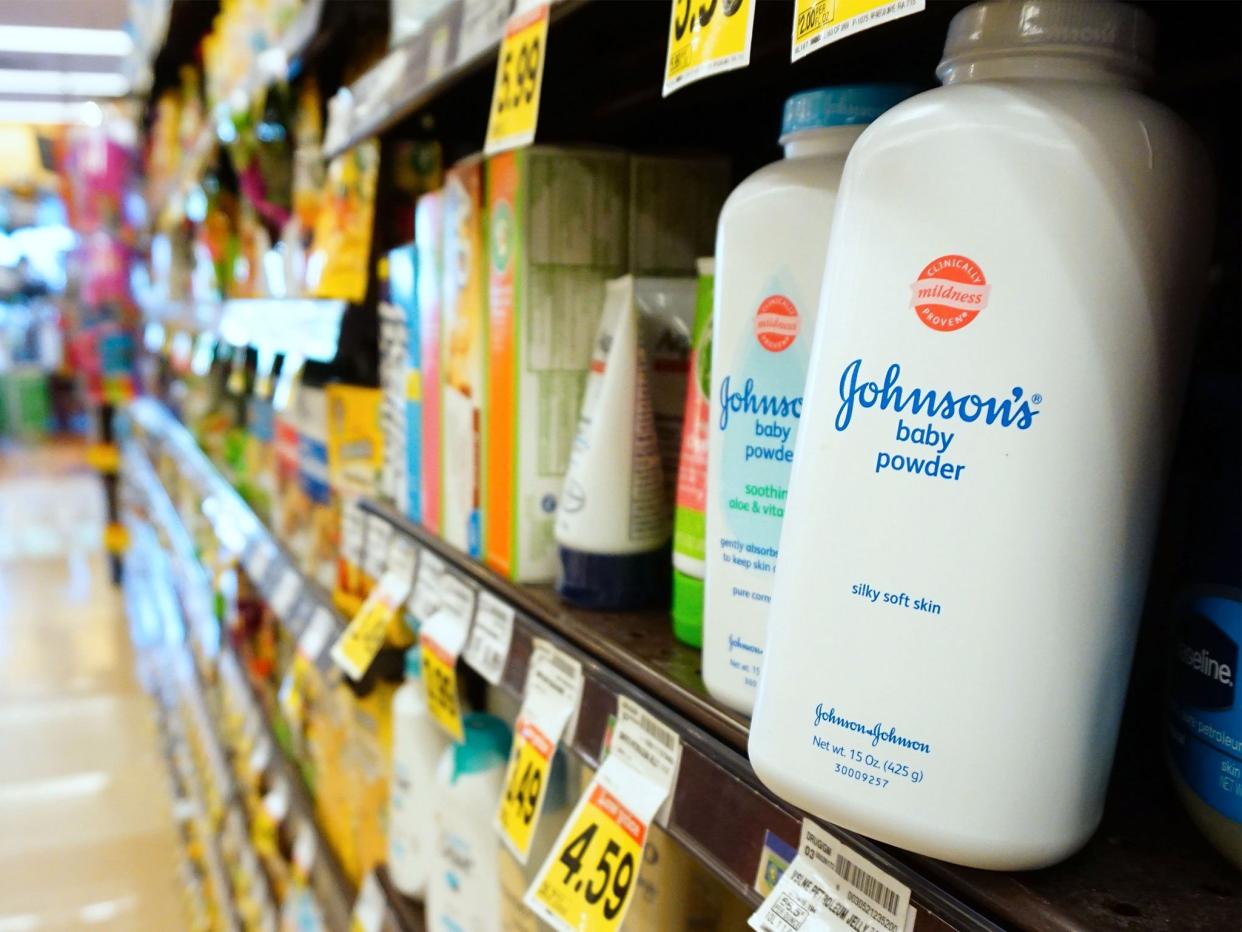Johnson & Johnson ordered to pay record $4.7bn damages over talc cancer lawsuit

Johnson & Johnson has been ordered to pay $4.7bn (£3.6bn) to 22 women who allege the company’s products caused them to develop ovarian cancer.
A Missouri jury handed down the largest-ever damages bill faced by the pharmaceutical giant on Thursday, in relation to claims its talc products contain asbestos and cause cancer.
In a statement, the company called the trial “fundamentally unfair” and said it would appeal the verdict, which comprised of $550m in compensatory damages and more than $4.1bn in in punitive damages.
Johnson & Johnson is battling some 9,000 lawsuits involving talc products, including claims surrounding its signature baby powder, but denies they cause cancer or have ever contained asbestos.
Its shares dropped by $1.31 (£1) to $126.45 (£96.16) in after-hours trading following the punitive damages award.
The jury's decision came after more than five weeks of testimony by nearly a dozen experts on both sides.
Women who brought the case claim decades-long use of talc products caused their diseases and allege the company knew its products were contaminated since at least the 1970s without acting.
“Johnson & Johnson is deeply disappointed in the verdict, which was the product of a fundamentally unfair process,” the company said in a statement.
“Every verdict against Johnson & Johnson in this court that has gone through the appeals process has been reversed and the multiple errors present in this trial were worse than those in the prior trials which have been reversed.”
Talc, the world's softest rock, is a mineral closely linked to asbestos and the two substances can appear in close proximity in the earth.
Plaintiffs claim the two can become intermingled in the mining process, making it impossible to remove the carcinogenic substance, a suggestion Johnson & Johnson refutes.
Mark Lanier, the lawyer for the women, called for the company to pull its talc products from the market in a statement following the verdict; “before causing further anguish, harm, and death from a terrible disease.”
“If J&J insists on continuing to sell talc, they should mark it with a serious warning,” Mr Lanier added.
The majority of the lawsuits faced by Johnson & Johnson involve claims talc itself caused ovarian cancer, but a smaller number also allege contaminated talc caused mesothelioma, a tissue cancer closely linked to asbestos exposure.
The corporation denies those allegations, saying rigorous testing and purification processes ensure its talc is clean.
Punitive damages are often reduced later either by judges or on appeal and Johnson & Johnson has successfully overturned talc verdicts in the past in appeal courts.
Previous talc trials have produced verdicts as large as $417m (£317m), but that 2017 verdict by a California jury was later overturned, as was another verdict in Missouri, while challenges to at least another five verdicts are pending.
Additional reporting by Reuters

 Yahoo News
Yahoo News 
